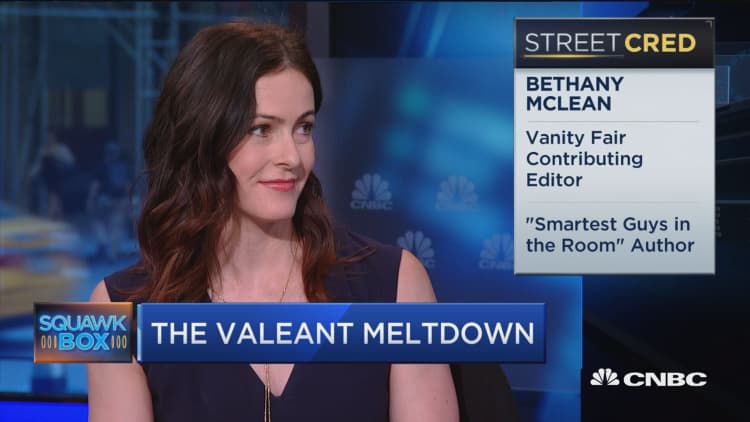
Valeant Pharmaceuticals, which is under scrutiny for business and accounting practices, reported a lower-than-expected quarterly profit and cut its full-year earnings and revenue forecast.
Shares of the pharmaceutical company skidded more than 10 percent in premarket trading immediately following the report. (Get the latest quote here.)
The company's U.S.-listed shares tumbled nearly 11 percent to $25.77 before the bell on Tuesday.
Valeant cut its full-year earnings forecast to $6.60 to $7.00 per share from $8.50 to $9.50, and its revenue forecast to $9.9 billion to $10.1 billion from $11.0 billion to $11.2 billion.
The company's newly appointed chief executive, Joseph Papa, said the first-quarter results reflected the impact of "significant disruption" over the past nine months.
"We have made progress toward stabilizing the organization over the past few months, and we expect to file our financial results in a timely manner going forward," Papa said in a statement.
Net loss attributable to the company was $373.7 million, or $1.08 per share in the quarter ended March 31, compared with a profit of $97.7 million, or 28 cents per share, a year earlier.
On an adjusted basis, Valeant earned $1.27 per share, missing analysts average estimates of $1.37, according to Thomson Reuters I/B/E/S.
The miss was largely driven by challenges in its dermatology unit, where sales tumbled 43 percent to $228.6 million.
While, Valeant's total revenue rose to $2.37 billion from $2.17 billion, it missed analysts expectation of $2.38 billion.
The drugmaker filed its 2015 financial report in late April, allaying concerns about a possible default on its debt of more than $30 billion.
The company missed an original March 15 deadline, citing an in-house review of its accounting practices. The probe found problems dating back to 2014.
— CNBC contributed to this report.

